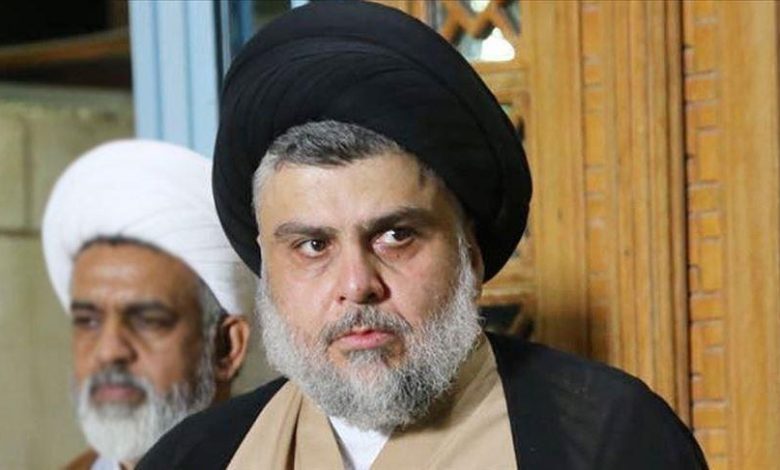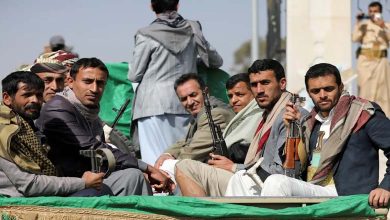Al-Sadr criticizes Shiite powers on the eve of the vote on the government of Al Sudani

The leader of the Sadrist movement, Muqtada al-Sadr, held the Shiite political forces opposed to him responsible for the crisis and cleared his conscience of the political blockage that took place in the past period, as these criticisms come on the eve of the vote on the government of Mohammed Shia’ Al Sudani in the parliament.
In a tweet on social networks, al-Sadr said, “I order virtue and forbid evil. God has the ultimate consequence.”
“He continued, “What I wanted to do was make the distortion, which was the main reason for which was the Shiite political forces, as the majority,” he said. “I just wanted to bring them closer to their people and to feel their suffering, perhaps because it would be a gateway for God’s approval of them, and how could they do that?”
The al-Sadr tweet shows that he disavows the political and field developments that will take place in Iraq in the future, accusing the Shiite political forces of indifference to the concerns and suffering of the citizens.
The criticism of Shiite forces comes a day before a parliamentary session is scheduled to vote on the government, which is backed by the Sadrist movement’s arch-rival Coordination Framework.
Iraqi parliament speaker Mohamed Al-Halbousi set Thursday as the date for a vote by MPs on the program and composition of Sudan’s government.
The official news agency reported that Al-Halbousi responded to a request from Al Sudani that he decided to hold a parliamentary session at 2 p.m. on Thursday “to vote on the ministerial platform and the cabinet”.
Al-Halbousi also decided to form a committee to “present its report on the ministerial program and present it to the council before the vote,” according to an official document published by AFP.
On Tuesday evening, Al Sudani asked parliament to hold a session on Thursday to vote on his government’s program and composition.
On October 13th, Al Sudani, the candidate of the Co-ordination Framework Forces, received an official letter from President Abdul Latif Rashid tasked with forming a new government within 30 days, according to the constitution.
Disagreements between the Sadrist movement (a Shi’i) and the Coordination Framework (a Shi’i close to Iran) have prevented the formation of a new government since the last legislative elections on October 10, 2021.
The Sadrist movement categorically refused to participate in the Al Sudani government, describing it as a “government of siege and militias,” while sources close to Al Sudani said that the latter tried hard to contact the Sadrists’ leader to find opportunities for rapprochement.
The Sadrist movement has repeatedly expressed its aspiration to form a national unity government, neither Western nor Eastern, based on qualified individuals. However, with the failure of its plans, observers believe that it will seek to mobilize the street to disrupt the government of the Al Sudani regime, which is feared by the political forces that founded the appointed prime minister, at the forefront of which is the framework.
The sources said that the Al Sudani government will consist of 22 to 24 ministries, 12 of which will be in the coordination framework, 4 for the Sovereignty Alliance led by Khamis Al-Khanjar and Mohamed Al-Halbousi, and 2 for the Azm Alliance led by Muthanna Al-Samarraie, while four will be in the Kurdish parties, three for the Kurdistan Democratic Party and one for the Patriotic Union of Kurdistan.
But senior Kurdish official Fadhil Mawat told Iraqi Kurdish news website Shafaq News this week that the framework will be divided into two ministries: the Ministry of Higher Education and the Ministry of Transport, Labor and Social Affairs.












